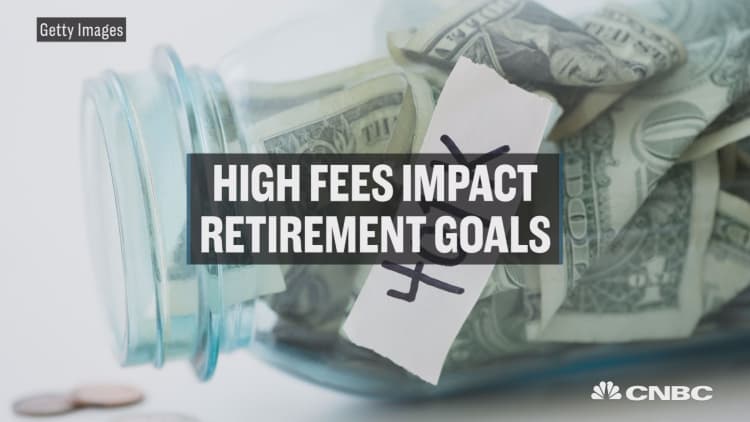
The next time you check your 401(k) account, take a careful look at the fees you're paying.
"Fees erode returns," and what you don't know could be hurting you, according to Josh Robbins, chief strategy officer at America's Best 401k.
Retirement savers often think of their 401(k) fees as "small percentages," and that's a mistake, Robbins said.
Take two investors, for example: one who's paying 1 percent in fees and another who's paying 2 percent.
"The person with 2 percent in fees will run out of money 10 years sooner than the person with one percent in fees," Robbins said. "That's dramatic."
To prevent that from happening to you, Robbins recommends you use a tactic he calls "financial archaeology."
First, if you're investing in a 401(k) plan, ask for a copy of your fee disclosure and look at the expense ratios on the mutual funds.
"If they're very high, like north of 1 percent, then that's a good indication that you might be paying too much," Robbins said.
The person with two percent in fees will run out of money 10 years sooner than the person with one percent in fees.Josh RobbinsAmerica's Best 401k
If the fees are too high, remember that you do have leverage with your employer.
"They are obligated to make sure that the plan is set up for the sole benefit of the employees," Robbins said. "Often, they're invested in the plan themselves, so they have a vested interest."
Approach your employer's human resources department or senior management, and ask them if they have recently benchmarked the 401(k) plan compared to the other options that are available.
"Most businesses haven't done it, and it's actually required by law to periodically benchmark your plan," Robbins said.
Look for low-cost index funds to invest in instead of the expensive funds in your plan. If index funds are not offered through your plan, ask your company to add them.
If a retirement plan provider declines to add them, it may be time to switch to a low-cost provider, Robbins said. You may also want to consider saving for retirement outside of the plan.
More from Personal Finance:
A tax-free account for Medicare that very few people use
Here are 10 tax changes for 2018 you need to know
This is the No. 1 thing Americans do with their tax refund


